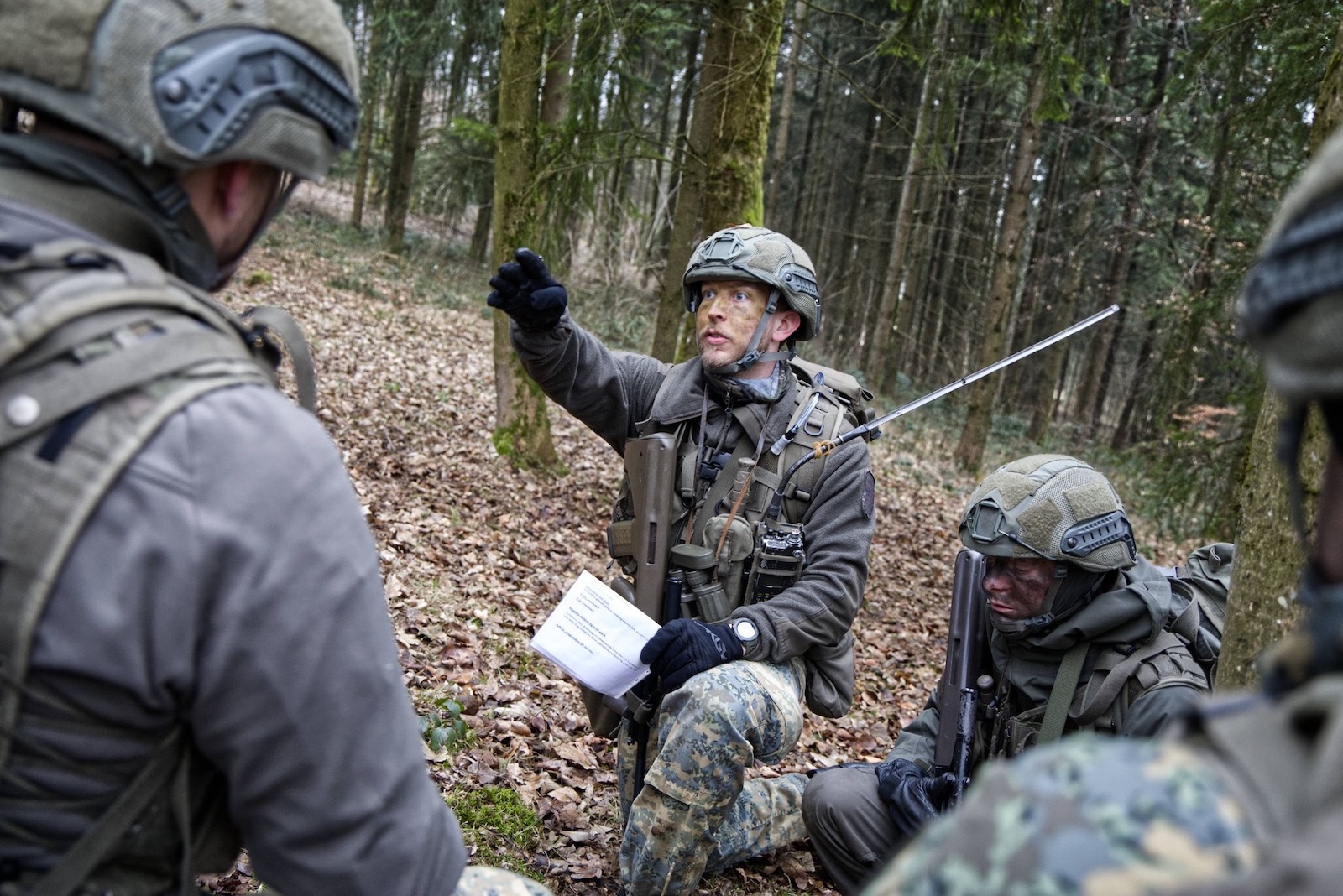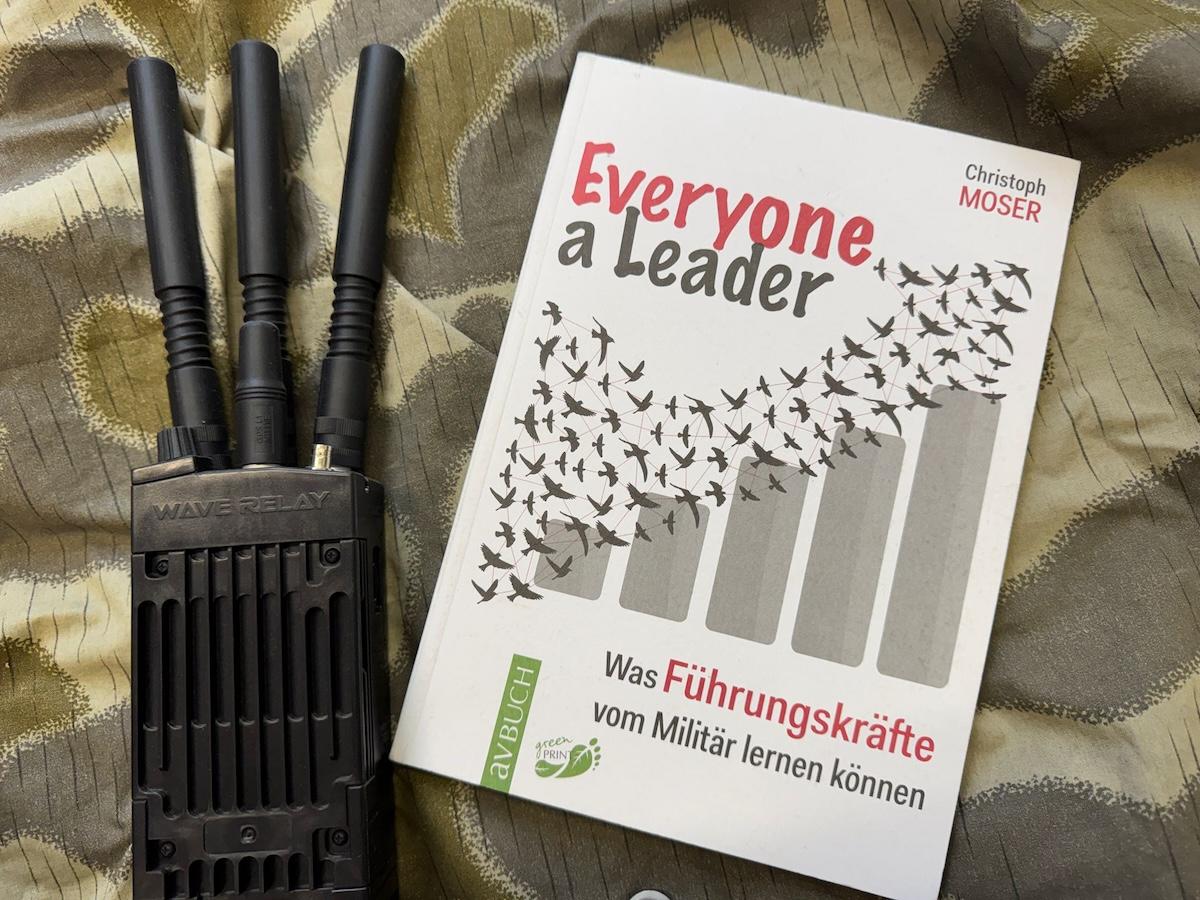Get the weekly SPARTANAT newsletter.
Your bonus: the free E-Book from SPARTANAT.

One must be capable of leading: “Everyone a Leader” offers a unique approach to meet the demands of the modern workplace. We wanted to know from Christoph Moser, who served in the Austrian special forces: How does one learn to lead? And why is it important for civilians as well as soldiers?
SPARTANAT: Christoph, speaking militarily: What does it mean to lead?
Christoph Moser: Leading primarily means making decisions and taking responsibility. The goal of mission tactics is to direct the entire creative potential of a team toward a common direction in the sense of the organization.
SPARTANAT: Leadership occurs not only in the military but also in the civilian world. What is different?
The biggest difference lies not in the type of leadership itself, but in the consistent implementation. The military systematically invests in the development of leaders at all levels and gives them responsibility early on. Each leader is trained at least one level above their position. Additionally, there are standardized processes, such as the leadership procedure, which provides everyone with a common methodology for structured decision-making. In the civilian world, leadership is very individual and depends greatly on the organization and the respective leader.

SPARTANAT: You have written a handbook with “Everyone a Leader” that brings experiences from one world to the other. What are your three most important tips?
1. Trust is the foundation of successful leadership: Build mutual trust through listening, appropriate communication, and corresponding actions.
2. Clearly communicate the purpose: Explain not just WHAT needs to be done, but especially WHY. Only when the team understands the overarching purpose can it act independently in the interests of the organization.
3. Enable creativity by challenging and supporting your employees and leaders.
SPARTANAT: What if someone is not a leader? Can they still learn it?
Yes, definitely, leadership can be learned. It requires three core elements: knowledge, ability, and willingness. Knowledge can be imparted through training, ability develops through practical experience and feedback. However, the crucial factor is willingness—the readiness to take on responsibility. In the military, leadership training begins on the first day when recruits take on small leadership tasks. Through gradually increasing responsibility and continuous coaching, leadership competencies can be systematically developed.
SPARTANAT: Who must read your book?
The book is aimed at everyone who wants to lead in our dynamic world, from project managers to team leaders to executive management, from startups to corporations.
It is particularly valuable for:
- Leaders (formal and informal) who want to empower their teams for more personal responsibility and initiative,
- People who seek structured methods to make better decisions.

CHRISTOPH MOSER was an officer in the special operations forces of the Austrian Armed Forces, where he was responsible for leadership development. He took part in numerous foreign missions and led agile teams in crisis regions. He is the Group Chief Security Officer at an international telecommunications company and was previously a resilience manager with an international banking group. He works as a leadership trainer and coach and gives lectures on leadership at various universities, the Austrian military academy, and in international companies.
The book “Everyone a Leader. What Leaders Can Learn from the Military” (AV Buch, 112 pages. german language) is available in our SPARTANAT SHOP for 19.90 euros.
SPARTANAT is the online magazine for Military News, Tactical Life, Gear & Reviews.
Send us your news: [email protected]
Ad
similar
Get the weekly SPARTANAT newsletter.
Your bonus: the free E-Book from SPARTANAT.


